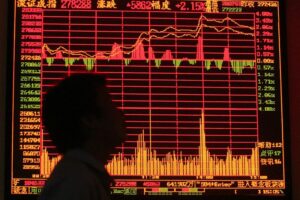
Amazon (AMZN 1.04%) stock has minted millionaires over its close to three decades on the market. If you were lucky enough to buy a share at its initial public offering (IPO), you’d have a lot more shares today, and you’d be richer. Amazon’s most recent stock split was in 2022, but it’s gone through several. Let’s see what your position would be today.
When you buy and hold, you can win
Amazon has split its stock four times since going public in 1997, moves that increased the number of shares while lowering the per-share price in concert. The first three splits happened right away, because Amazon was growing by leaps and bounds, and its incredible performance was reflected in a quickly rising stock price. It split in March 1998 in a 2-for-1 split, and then again in November 1998 in a 3-for-1 split. It went through another 2-for-1 split in 1999. It was quiet for the next 23 years, but Amazon’s price tag ballooned into the four digits, and it finally split again in 2022 in a 20-for-1 split.
Amazon stock was priced at $18 at IPO, but split-adjusted, the price for that first share would be $0.075. If you had bought one share at IPO, you’d have 240 shares today. Those shares would be worth $47,280 as I write this.
If you’d only bought one share, you wouldn’t be able to retire just yet. But investors don’t usually buy just one share. If you’d invested $100 on the first day of trading, you’d have shares worth more than $200,000 today, which also probably isn’t enough to retire on, but is a nice chunk of change.
Amazon stock has gone through some rough times, but buying and holding in companies you have confidence in can lead to long-term wealth creation. Today, Amazon doesn’t offer the same earth-shattering gains it did if you bought at IPO, but it was more of a risk back then, and now it offers growth with more security.
John Mackey, former CEO of Whole Foods Market, an Amazon subsidiary, is a member of The Motley Fool’s board of directors. Jennifer Saibil has no position in any of the stocks mentioned. The Motley Fool has positions in and recommends Amazon. The Motley Fool has a disclosure policy.





